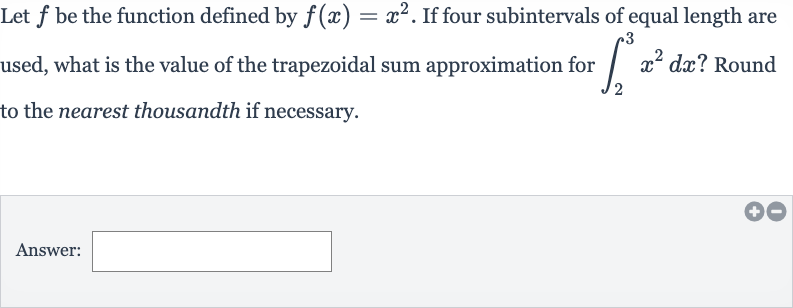Full solution
Q. Let be the function defined by . If four subintervals of equal length are used, what is the value of the trapezoidal sum approximation for ? Round to the nearest thousandth if necessary.Answer:
- Determine Subinterval Width: To use the trapezoidal rule, we first need to determine the width of each subinterval. The interval from to has a length of . Since we are using four subintervals, each subinterval will have a width of .Calculation:
- Calculate Function Values: Next, we need to calculate the values of the function at the endpoints of each subinterval. These points are , , , , and . Calculation: , , , ,
- Apply Trapezoidal Rule: Now we apply the trapezoidal rule, which is given by the formula:Trapezoidal Sum where , , , , and are the endpoints of the subintervals.
- Plug in Values: Plugging in the values we have:Trapezoidal Sum = Trapezoidal Sum =
- Perform Calculations: Performing the calculations:Trapezoidal Sum = Trapezoidal Sum = Trapezoidal Sum = .
- Round to Nearest Thousandth: Rounding to the nearest thousandth, we get: Trapezoidal Sum

